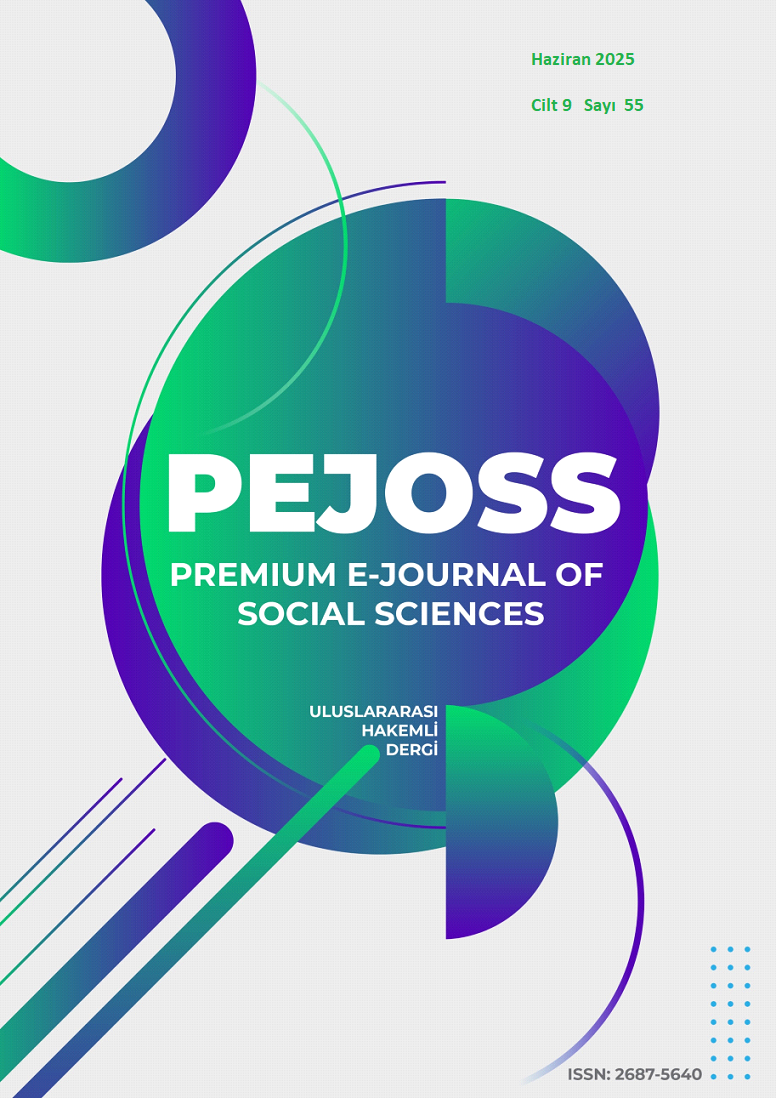Media Coverage of the Uyghurs’ Application Process to the United Nations
DOI:
https://doi.org/10.5281/zenodo.15807622Keywords:
Uyghur, United Nations, Turkey, Media.Abstract
This study examines the human rights violations experienced by Uyghurs unlawfully detained in internment camps established by the People’s Republic of China in East Turkistan, with particular focus on the legal struggle undertaken by the Uyghur diaspora in Turkey within the framework of the United Nations (UN). Specifically, it investigates how the application submitted by the Platform for Victims of Chinese Camps to the UN Working Group on Arbitrary Detention has been represented in the Turkish print media. Rather than limiting itself to content analysis, the study evaluates news articles in relation to ideological orientations, discursive structures, and broader media–politics dynamics. For this purpose, two national newspapers with markedly different ideological perspectives—Yeni Akit and Aydınlık—were selected, and relevant articles were analyzed in detail using discourse analysis. The study also draws on conceptual frameworks such as media–politics relations, agenda-setting theory, and media economics. Additionally, the language, tone, and framing of the reports are assessed to understand how media institutions respond to humanitarian crises and present them to the public.
The findings reveal that the Uyghur issue has received minimal coverage in Turkey’s mainstream print media, largely shaped by the dynamics of Turkish–Chinese diplomatic, political, and economic relations. Despite the serious and systematic human rights violations faced by Uyghurs, the fact that only two ideologically divergent newspapers have addressed the issue underscores a major deficiency in Turkish media’s engagement with such humanitarian concerns. The framing of the reports suggests that editorial choices are shaped not only by internal decisions but also by foreign policy priorities, economic dependencies, and domestic political alignments. Accordingly, the study questions the media’s public responsibility and the extent to which journalism in Turkey is guided by a commitment to human rights, while also opening a broader discussion on the role of the media in promoting social justice and upholding international human rights norms.
Downloads
References
Atabey, S. (2019). Birleşmiş Milletler keyfi tutuklama çalışma grubu, İnsan Hakları, 3, 58-62.
Alev, O. (2020). Kitle iletişim araçları medya: Medya`nın birey ve toplumsal yapıya etkileri. Hiper Yayın.
Çağlav, G. (2022, 10 Mayıs). Uygur Türkleri Çin’i BM’ye şikâyet etti, Yeni Akit Gazetesi. https://www.yeniakit.com.tr/haber/uygur-turkleri-cini-bmye-sikayet-etti-1654552.html
Çeliksöz, M. (2019). Birleşmiş Milletlerin teşkilatının kuruluş yapısı BM’nin barış, çözüm ve çatışmaya dair çalışmaları, Ankara Yıldırım Beyazıt Üniversitesi Sosyal Bilimler Enstitüsü. https://www.academia.edu/41898534/birleşmiş_milletlerin_teşkilat_yapısı
Çilingir, G. A. ve Duna, D. (2022). Uluslararası hukuk açısından Tayvan’ın konumu. A. M. Merthan (Ed.), Türkiye’de Tayvan çalışmaları III (ss. 71-94). Ankara Üniversitesi Yayını.
Girgin, A. (2003). Yazılı basında haber ve habercilik etik’i, İnkılap Kitabevi.
Girgin, A. (2008). Gazeteciliğin temel ilkeleri, Der Yayınevi.
Global Affairs Canada (2021, 22 Şubat) Canada deeply concerned by allegations of genocide in Xinjiang. Government of Canada. https://www.canada.ca/en/global-affairs/news/2021/02/canada-deeply-concerned-by-allegations-of-genocide-in-xinjiang.html
Herman, E. S. ve Chomsky, N. (2012). Rızanın imalatı: Kitle medyasının ekonomi politiği (E. Abadoğlu, Çev.). BGST Yayınları.
İdris, A. (2021). Kızıl kıyamet. Şenyıldız Yayınları.
İrvan, S. (2001). Gündem belirleme yaklaşımının genel bir değerlendirmesi. Gazi Üniversitesi İletişim Fakültesi Dergisi, 9(1), 69-106.
Küçük, E. (2022, 10 Mayıs). Ayrılıkçılar Çin`i BM`ye şikâyet etti, Aydınlık Gazetesi. https://www.aydinlik.com.tr/haber/ayrilikcilar-cini-bmye-sikayet-etti-315589
Working Group on Arbitrary Detention. (2025, 10 Nisan). Opinions adopted by the Working Group on Arbitrary Detention. Office of the United Nations High Commissioner for Human Rights. https://www.ohchr.org/en/special-procedures/wg-arbitrary-detention/opinions-adopted-working-group-arbitrary-detention
Özçetin, B. (2018). Kitle iletişim kuramları: Kavramlar, okullar, modeller. İletişim Yayınları.
Reuters. (2021, 26 Şubat). Dutch parliament: China's treatment of Uighurs is genocide. https://www.reuters.com/article/world/dutch-parliament-chinas-treatment-of-uighurs-is-genocide-idUSKBN2AP2CH
Tokgöz, O. (2006). Temel gazetecilik (6. baskı). İmge Kitabevi Yayınları.
U.S. Department of State. (2021, 19 Ocak). Determination of the secretary of state on atrocities in Xinjiang. https://2017-2021.state.gov/determination-of-the-secretary-of-state-on-atrocities-in-xinjiang
Yaylagül, L. (2006). Kitle iletim kuramları. Dipnot Yayınları.
Downloads
Published
How to Cite
Issue
Section
License
Copyright (c) 2025 Premium e-Journal of Social Science (PEJOSS)

This work is licensed under a Creative Commons Attribution 4.0 International License.


